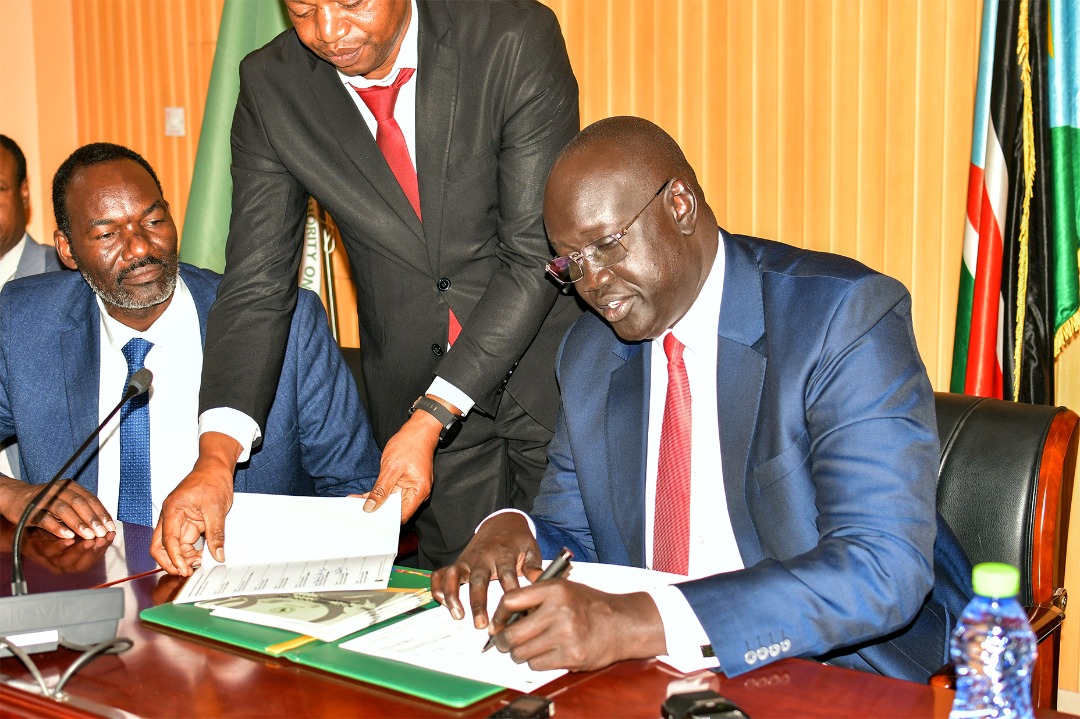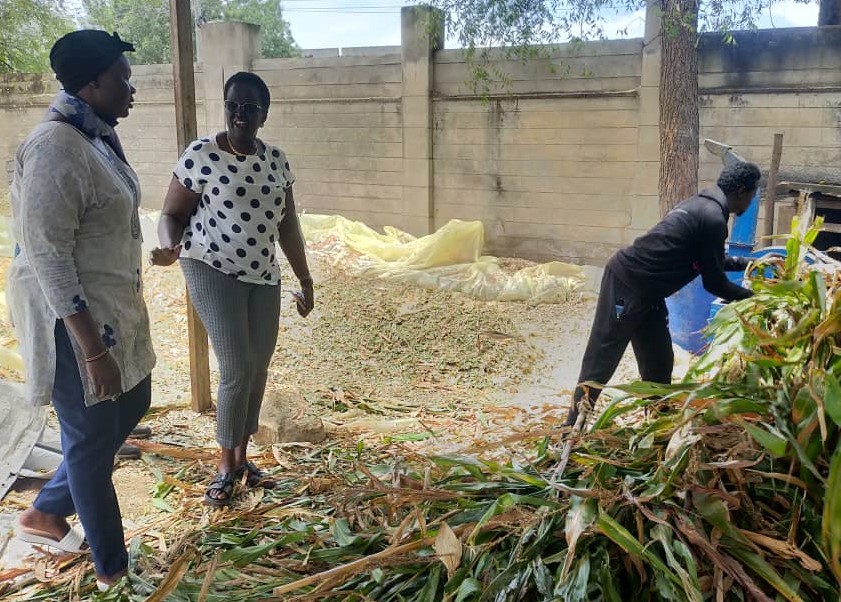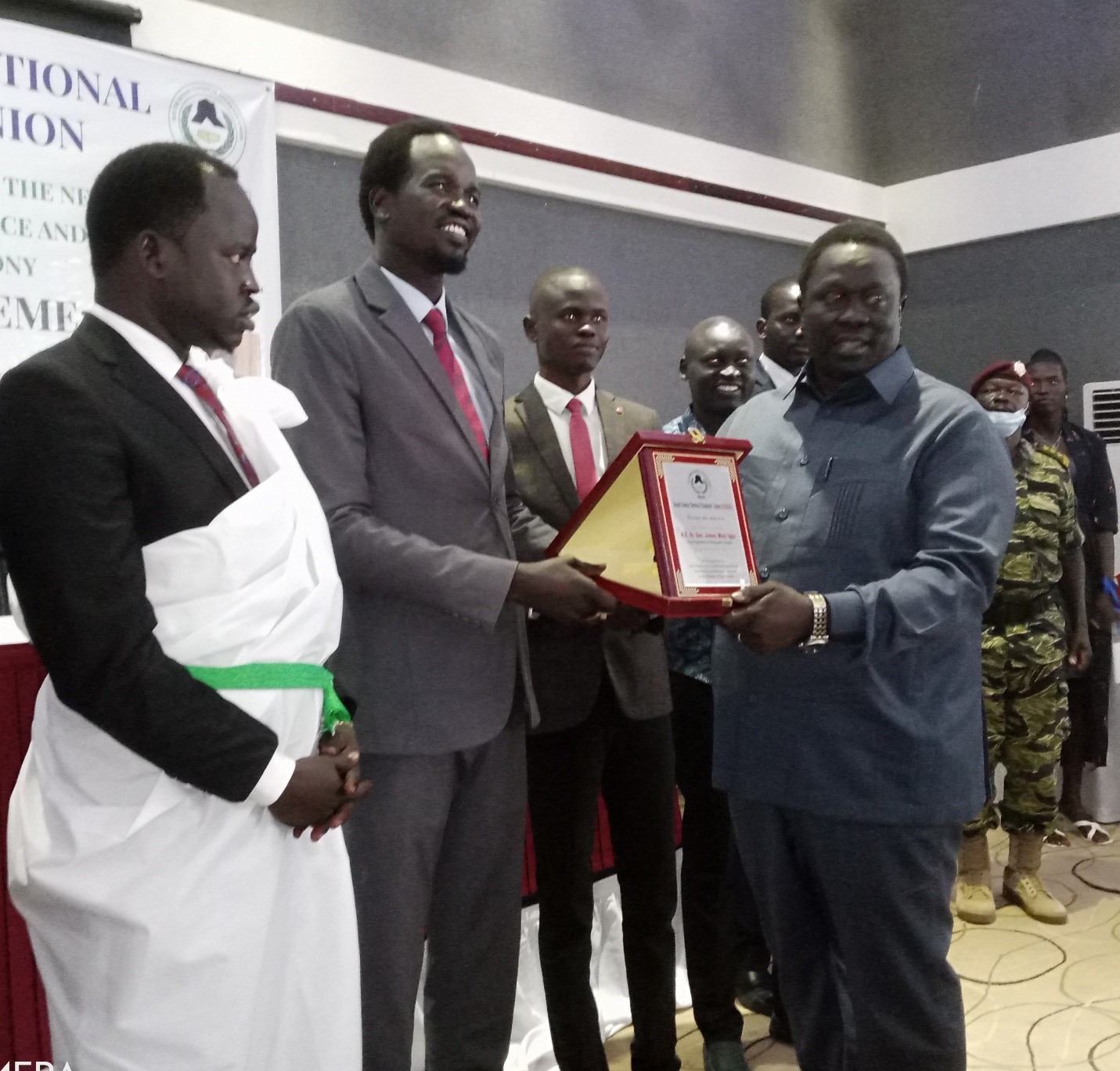
Government, IGAD ink protocols on transhumance

South Sudan’s government through the Ministry of Foreign Affairs has on Friday signed two protocols of transhumance and person movement meant to regulate the movement of cattle and people in the region. The Intergovernmental Authority on Development (IGAD) delegates to South Sudan said all member countries shall sign the protocols.
In a statement during a signing ceremony in Juba on Friday, South Sudan’s Minister of Foreign Affairs Mayik Ayii said the free movement of the cattle and people will boost the economy of the country.
“We are happy to sign these protocols that were approved by IGAD member states because this is for the benefit of IGAD countries. So, free movement of pastoralists will help our economy and will help our countries to grow,” Ayii said.
“The pastoralists are not prisoners, they are not coming to stay forever, but they are coming for seasonal grazing and they will go back to their countries of origin. So, this mechanism will guide it and will regulate it and will put in other precautions like health,” he added.
For his part, the Director of IGAD Centre for Pastoral Areas and Livestock Development, Dr Mohamed Elduma said the protocols will ease the movement of people and transhumance in the IGAD region.
“Those protocols are very important for us for facilitation of movement in the IGAD region. We started in Khartoum two weeks ago when the foreign affairs minister for Khartoum signed them, we are here in South Sudan, then we will move to Uganda and then other member states,” he noted.
Bika said the signing of the protocols gives recognition and regulates movement by pastoralists in four different countries which have so far signed the protocols.
“This protocol is supposed to regulate and give recognition to pastoralists who do cross-border transhumance. We have got pastoralists who are actually covering four different countries; South Sudan, Ethiopia, Kenya, and Uganda,” he said.
“In some seasons, they are on this side of the border and on some seasons they are on the other side of the border. So the protocol gives recognition to that mobility and actually supports the mobility, it talks about how an orderly safe movement will take place in the four countries in the region, but the transhumance protocol covers the seven IGAD countries,” Bika added.
A virtual meeting on the 24th of June 2021 adopted the two protocols to facilitate the movement of transhumance across IGAD member states.
The 32-article IGAD Protocol on Transhumance provides for; among other things, that “all transhumant livestock and herders shall be allowed free and safe passage across points of entry into and departure from each country on condition that they have the IGAD Transhumance Certificate.” Article 20 (a).
Adigo Onyoti, South Sudan’s Minister of Livestock and Fisheries said the movement of animals will be regulated by issuing health certificates to every animal in the region.
“The movement will be guided by the health certificate which will be followed because we don’t want cattle from different countries coming to affect other countries if they have got diseases,” Onyoti said.
“So, there is a verification and a need for the movement of cattle to be guided by the certificate because diseases of cattle can affect human health. Also, there is a protocol of the movement of humans because people coming to other countries are coming to the host countries and, so there should be a protocol to guide them and their movement,” added Onyoti.



































